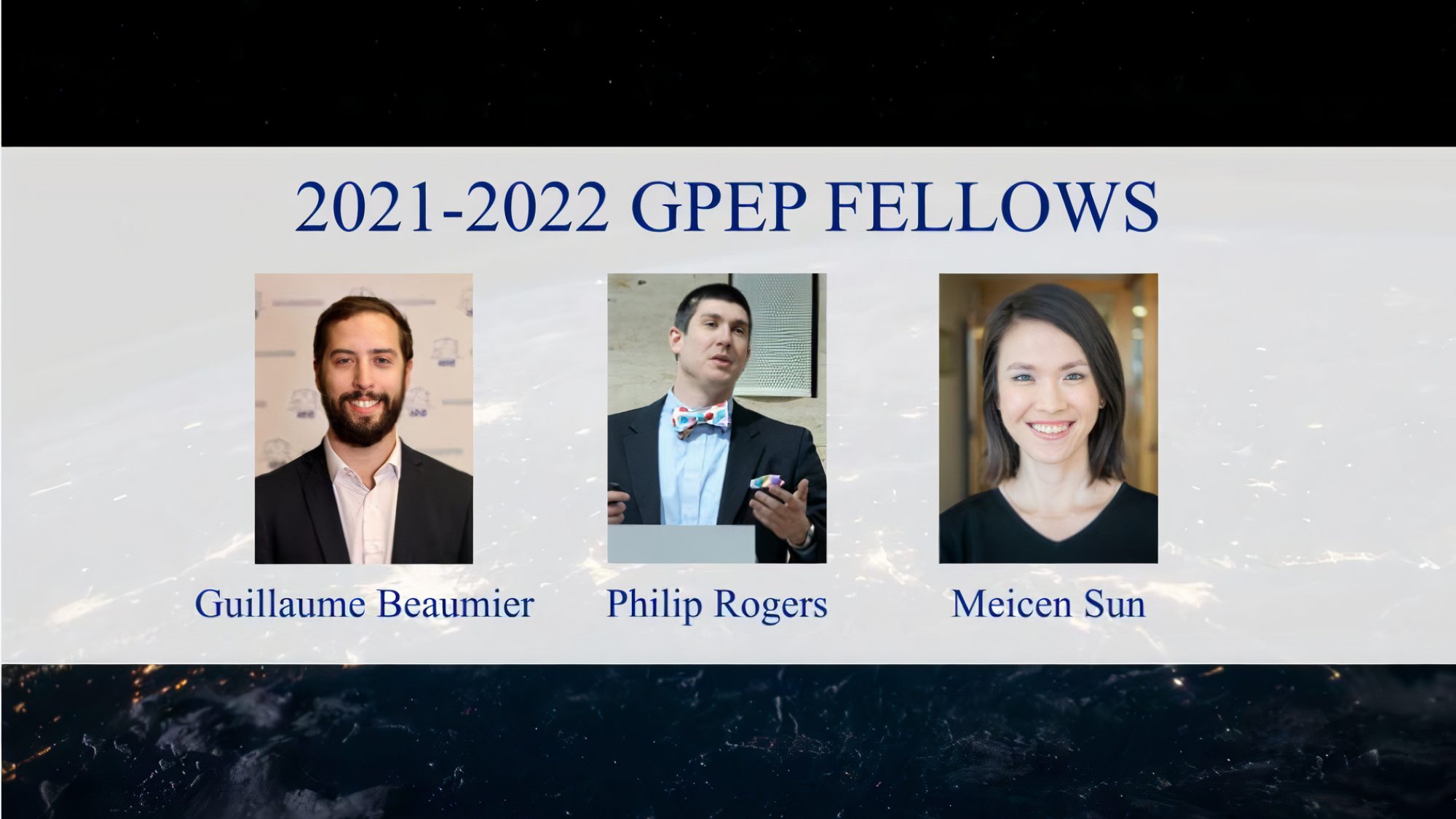A little over a year ago, the Mortara Center received a grant from the Open Society Foundations’ Economic Justice Program to support its launch of a new initiative to advance understanding of the effects of globalization on people’s lives: the Global Political Economy Project (GPEP). To advance GPEP’s goals of generating ideas for change, creating a scholarly infrastructure, and disseminating a new model of the market, the Mortara Center recently hired three brand new GPEP Fellows for the 2021-2022 academic year. Each GPEP Fellow brings their own unique background and research interests to the work of the Global Political Economy Project, so we at the Mortara Center figured we would reach out to our GPEP Fellows to learn a little more about them!
Despite a rocky start to their time as GPEP Fellows thanks to Covid-19, the three ambitious scholars are excited to work with each other and GPEP Co-Directors Kathleen McNamara and Abraham Newman. Guillaume Beaumier completed a joint PhD in politics and international studies at the University of Warwick and Université Laval. His work mainly revolves around the growing complexity of global governance, international trade, and the digital economy. As a GPEP Fellow, Guillaume focuses on the regulation of artificial intelligence and how new rules are being created to oversee its growing application in the global economy. Philip Rogers is a PhD candidate at the University of California, Berkeley’s Charles and Louise Travers Department of Political Science. Focusing primarily on China, his research draws upon the nexus of law, policy, and business to study regulatory frameworks for technological innovation in domestic and international contexts. Meicen Sun is a PhD candidate of international relations and political economy at the Massachusetts Institute of Technology where she focuses on international security, the political economy of technology, and Chinese foreign policy. Her research examines the effect of information policy on the future of innovation and state power.
The fellows were each drawn to the field of political economy by a plethora of reasons. Guillaume says he stumbled upon the subject without meaning to. Plagued by indecisiveness, he began studying political economy because it contained all of the subjects he was interested in, without him having to choose only one. He is especially interested in understanding how interactions between public and private actors can shape the rules overseeing the development of a digital economy. For Philip, seeing world leaders and market reports every night on TV from a very young age made him gravitate towards majoring in economics in college. Political economy allows him to explore the nexus of forces that impact all our daily lives: business, law, and public policy. Meicen’s first encounter with political economy was reading After Hegemony for a class in college. She became instantly fascinated by how the author broke down the most complex problems in international politics in such a sharp and systematic way.
Despite the unpredictability of life on campus in the age of Covid-19, we at the Mortara Center are so happy to have these three fellows with us for the year and can’t wait to see all that they accomplish!
